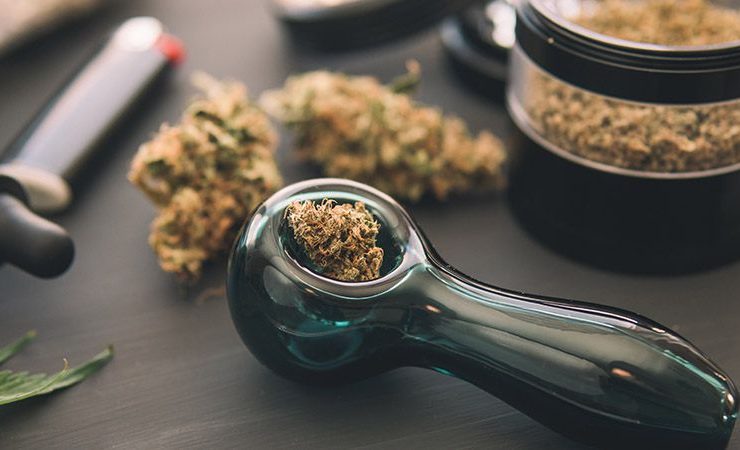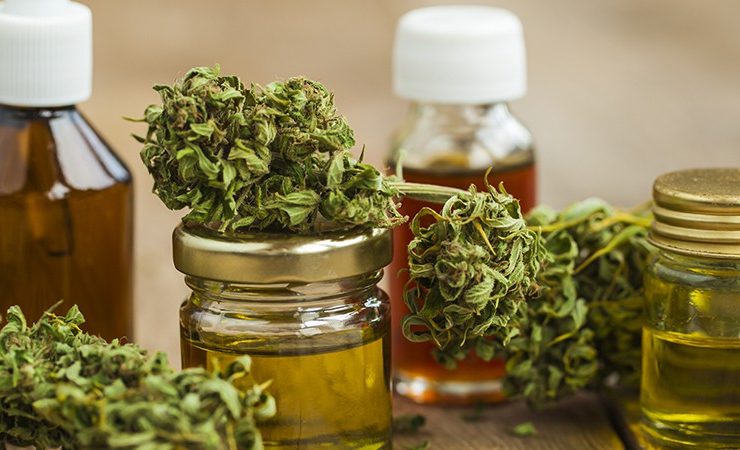Risks of Using Marijuana
The public opinion regarding marijuana usage in Canada is overwhelmingly negative. But it is shifting. According to a recent survey, only 73% of residents believe smoking cannabis comes with health and situational risks. That’s a drop from 74% in 2019.
Slowly but surely, public opinion on cannabis use is changing. Some believe this change is due to the cannabis’ legal nature in Canada. Regardless of the why, it’s essential to sensitize the public about marijuana’s possible risks.
While it can seem pretty harmless, marijuana can change the way your mind and brain works. Over time, these changes will accumulate and can have dangerous consequences on your long-term health.
Marijuana Abuse Risks
The risks of frequent marijuana use exist across the spectrum. From the brain to your respiratory and sexual systems, marijuana can do plenty of damage.
Below is a closer look at the adverse effects of using marijuana:
Marijuana’s effects on the Brain
Marijuana is a pretty potent chemical compound thanks to Tetrahydrocannabinol (THC), the active agent. THC mimics the natural function of endocannabinoids.
Endocannabinoids occur naturally and produce neurotransmitters that link the central nervous system to the brain. These compounds are also responsible for muscle relaxation, metabolism, appetite and other related bodily functions.
The previous paragraph details just how important endocannabinoids are to the body. Because of how essential endocannabinoids are, the human brain has unique receptors to accommodate their function. And since THC — the active compound in marijuana — mimics endocannabinoids, it’s easy for your brain receptors to latch onto it.
As such, marijuana triggers the same physiological effects as endocannabinoids. Consequently, marijuana can disrupt the normal function of these physiological reactions.
That’s one of the major risks of frequent marijuana usage. For example, smokers often experience increased pain, inability to feel pleasure and sudden emotional changes.
Possible Memory Problems
The risk of memory problems due to marijuana usage has to do with the way cannabis affects the hippocampus. The hippocampus is the part of your brain that controls your short-term memory.
Preventing you from storing new memories is how marijuana can affect your brain. Cannabis can also impair your brain’s ability to learn new skills and knowledge.
People who use marijuana heavily are at risk of creating false memories. False memories can exist even if the user goes more than one month without using marijuana. This conclusion comes from a recent report in the Molecular Psychiatry journal.
Another study from the Hippocampus journal finds that teenagers who smoke marijuana daily risk developing abnormal-looking hippocampus regions in their twenties. The same study discovered these individuals perform up to 18% worse than people who don’t smoke weed on long-term memory tests.
Risk of Lung Damage
Marijuana smoke is home to chemicals like hydrogen cyanide and ammonia, which can negatively affect your respiratory system. Exposure to these chemicals can damage your lungs and bronchial passages. Consequently, severe damage to your lungs is one of the risks of smoking marijuana frequently.
The risks marijuana poses to the respiratory system include difficulties breathing. Some regular weed smokers may experience breathing problems or produce excess mucus and phlegm. According to the Journal of General Internal Medicine, some of the negative effects of marijuana mimic tobacco smoking.
Reduced Dopamine in the Body
Earlier in this article, we discussed how marijuana affects physiological reactions in the body. Your ability to feel pleasure is one body reaction susceptible to marijuana’s negative effects.
Dopamine is the neurotransmitter that regulates your brain’s pleasure and reward centre. And heavy marijuana use can compromise your body’s ability to produce dopamine.
The conclusion above is valid thanks to a recent Molecular Psychiatry study. Participants in this study started smoking weed at age 16 and became entirely dependent four years later. Conclusions from the test showed lower dopamine levels in patients who smoked marijuana.
Heart Disease
The downsides to using marijuana don’t stop with the brain or respiratory system. Frequent marijuana use is also a huge risk for your heart.
After leaving the lungs, THC enters the bloodstream, making its way to your heart. And according to info from the National Institute on Drug Abuse, marijuana can increase your heart rate by up to 50 beats every minute. This increased heart rate syndrome can last for up to three hours. And in case you were wondering, increased heart rate isn’t good for the body.
Marijuana also increases the risk of a heart attack, especially if you already have heart disease. Data from the Journal of the American Heart Association indicates regular marijuana use can contribute to a heart attack, stroke and heart disorders.
Marijuana Risks for Nursing and Pregnant Mothers
Is marijuana bad for you? In most scenarios, the answer to this question can be subjective and argumentative.
But the answer is always yes if you’re a pregnant or nursing mother. The risks are so severe that we recommend marijuana addiction treatment for pregnant women and nursing mothers.
According to Health Canada, marijuana consumption during pregnancy is related to long-lasting damage to the unborn child’s memory. This damage isn’t limited to the womb.
Breasting is another avenue for dangerous toxins in marijuana to pass from mother to infant. That’s why the National Institute of Child Health and Development has strong recommendations against consuming recreational drugs like marijuana during pregnancy and breastfeeding.
As with the other risks of marijuana use, the science to back this finding is still pretty much unfounded. However, most experts agree that pregnant women should avoid ingesting substances that add nothing to the fetus’ health. Pregnancy is all about playing it safe. And there’s no version of events where cannabis is safe for a fetus.
Increases the Likelihood of Using Other Drugs
Certain schools of thought define marijuana as a gateway drug. This definition means regular marijuana use can cause a person to start using other drugs like cocaine or heroin. While there is limited scientific evidence on this subject, the reality is different.
People who use hard drugs like heroin and cocaine almost always abuse marijuana. The risk of dependence is especially higher if they started using marijuana in their teenage years.
Drug dependence can happen regardless of sex, age, and economic status. However, the following factors increase the influence of marijuana as a gateway drug:
- Family history
- Peer pressure
- Social isolation
- Access to drugs
- Socioeconomic status
- Mental health issues
Related Article: What is the Easiest Way to Quit Smoking Weed?
Testicular Cancer and Reduced Sexual Function
Scientific data associates frequent cannabis use with germ cell tumours developing in the testes. It’s important to note this data doesn’t prove marijuana causes testicular cancer. In fact, testicular cancer is a rare condition that accounts for 1% of all cancers in men.
However, evidence suggests heavy marijuana use is a huge risk factor for testicular cancer. Plus, marijuana’s effects on the testes may extend to sexual libido.
Many researchers believe marijuana can facilitate sexual pleasure and thrill. Others believe this increased thrill is a placebo effect that stems from the taboo nature of cannabis.
Factually, studies involving animals show cannabis can reduce sexual pleasure instead of augmenting it. Cannabis inhibits the function of receptors present on an animal’s penis. As such, the hypothesis is that marijuana does more to inhibit sexual pleasure as opposed to enhancing it.
The Risk of Poisoning
Marijuana has barely been legal in Canada for ten years. As such, the process of regulating its consumption is still very much in its infancy. The lack of a regulatory structure means most marijuana products do not undergo any testing or regulatory stage. Therefore, the risk of poisoning when using marijuana products is high.
Let’s take marijuana edibles as a reference point. Edibles describe regular drinks or food products with a marijuana infusion. Here’s how poisoning may come into play with marijuana edibles:
- They can take up to 2 hours to display the high effect of marijuana. Therefore, many users often eat more than they should because they want to experience quick highness effects.
- Your digestive system absorbs the THC in marijuana edibles. This direct absorption increases the timeline of the resulting intoxication effects.
- It’s impossible to predict the strength of THC present in marijuana edibles. Often, the strength and concentration of THC in the product can catch you off-guard.
Another risk of frequent marijuana consumption is when kids or pets ingest it. Parents who use marijuana edibles frequently can forget to preserve these products securely. In this scenario, kids and pets can mistake edibles for candy.
Inadvertent marijuana consumption can cause a myriad of health problems in kids. For example, it can lead to unconsciousness, breathing difficulties and increased heart rate.
Driving Risk
Laws against driving under the influence are not only in existence for alcohol. Driving a vehicle under the influence of marijuana is super dangerous and illegal in Canada.
Driving is a complex task that requires all of your concentration. But, remember, marijuana can affect your body’s balance, judgements, balance and coordination. Therefore, it’s less likely you’re going to remain alert if you drive under the influence of alcohol.
Below is a detailed description of the risk marijuana poses for drivers:
- Cannabis impairs your ability to make swift decisions
- It significantly reduces your reaction time
- It distorts depth and distance perception.
The emergency room numbers certainly point to a distinct relationship between frequent marijuana use and car crashes. However, we still need plenty of research to validate this school of thought.
No scientific study has conclusively linked the presence of THC in the body to impaired driving performances. But one fact is for sure — marijuana and alcohol (which often go together) increase impairment and the risk of road accidents.
Tips to Protect Against Impaired Driving
The best way to lower the risk of accidents while driving is to avoid using marijuana beforehand. But you can also follow these preventive steps if you plan to use marijuana:
- Make a conscious decision not to drive. Do the same for other members of your outing party.
- Select a designated driver that won’t drink or consume marijuana. This tip is especially effective if you’re going out with members of your social circle.
- Make arrangements for a ride to get you home. This ride should be from someone who hasn’t been using drugs. For instance, a taxi or ride-sharing service can fill the transportation gap without any risk.
Bone Health
A 2017 study shows frequent marijuana intake can reduce bone density. The numbers prove that those who used marijuana more than 5,000 times over their lifetime had lower bone density than sober people.
The sharp drop in bone density due to marijuana increases the risk of bone problems like osteoporosis. Weak bone density can also increase the probability of bone fractures.
On the flip side, the risk of bone problems depends on your choice of marijuana strain. Strains with higher CBD content may boost healing and increase bone strength following a fracture.
Related Article: How Can Marijuana Affect Your Health
Final Take
The main risk of marijuana abuse has to do with its effects on the brain. Marijuana can affect your brain’s ability to make new memories and learn new skills. It also distorts physiological body functions like your appetite, ability to feel pleasure and mood.
That’s why it’s important to beat marijuana addiction before it takes root. Here at Inspire Change Wellness Centre, we provide marijuana treatment services for men in Vancouver.
Our specialists will assess your unique situation and determine the best addiction treatment plan for you. Contact us today to learn more about our addiction services!




